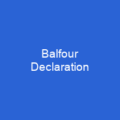Palestine: A Land of Rich History and Ongoing Struggle
Imagine a land steeped in history, where ancient traditions meet modern challenges. Palestine, officially the State of Palestine, is a country that has seen countless empires rise and fall, leaving an indelible mark on its culture and identity. Recognized by 146 out of 193 UN member states, it encompasses the Israeli-occupied West Bank (including East Jerusalem) and the Gaza Strip. This land, with its rich history and diverse population, has been at the heart of one of the world’s longest-standing conflicts.
The Historical Context
From ancient times to the modern era, Palestine has been a bridge between Asia and Africa, ruled by various empires. The ongoing Israeli-Palestinian conflict dates back to World War I, with large-scale Jewish immigration leading to increased tensions with the local Palestinian Arab population. In 1947, Britain proposed a partition plan for two independent states but it was rejected, leading to the 1948 Palestine war and the establishment of Israel.
The Birth of a Nation
In 1988, the Palestine Liberation Organization (PLO) declared independence. The Oslo peace accords in 1993 created limited governance for the West Bank under Palestinian Authority control, while Hamas controls Gaza. Since then, Palestine has faced numerous challenges, including ineffective government, Israeli occupation, and a blockade.
Geography and Economy
Palestine shares its borders with Israel, Jordan, and Egypt, covering 6,020 square kilometers. Its population exceeds five million people, with Jerusalem as the capital and Ramallah serving as the administrative center. The country has an emerging economy, sees frequent tourism, and is a member of several international organizations.
Environmental Challenges
The climate varies widely, from Mediterranean at lower elevations to dry hot in higher regions. Rainfall is scarce, falling mainly between November and March. Environmental issues include desertification, salination, sewage treatment, waterborne diseases, soil degradation, and depletion of underground water resources.
Politics and Governance
Palestine operates a semi-presidential system of government, with institutions associated with the PLO including the President, Palestinian National Council, and Executive Committee. The PNA governs Palestine in an authoritarian manner, while Hamas controls Gaza under a blockade imposed by Israel.
International Recognition
The State of Palestine has 146 UN member states recognizing it since 2012. It is a full member of the Arab League and Organization of Islamic Cooperation. Notable allies include Iran, India, and Sweden. The PLO acts as the government, with Mahmoud Abbas as president.
Economy and Development
The Palestinian economy relies heavily on international aid, remittances, and local industries. Israel’s closure policy has led to widespread unemployment and poverty. Agriculture suffers from Israeli restrictions on water usage, while manufacturing sectors include textiles, food processing, pharmaceuticals, construction materials, and more.
Energy and Tourism
Palestine holds massive potential reserves of oil and gas, with significant focus on solar energy. The tourism sector has seen an increase in recent years, with 4.6 million visitors in 2010. Notable sites include the Western Wall, Church of the Holy Sepulchre, and Al-Aqsa Mosque.
Culture and Society
Palestinians are natively Arab but have a rich cultural heritage influenced by various empires. Traditional music features instruments like the oud and qanun, while Dabke is a popular dance form. Palestinian hip-hop serves as a powerful medium for expressing realities faced by Palestinians.
Education and Healthcare
The education system includes primary school, preparatory school, secondary education, vocational education, and Islamic/Christian religious studies. The Palestinian Ministry of Health operates primary health care centers and has established partnerships with international organizations to provide healthcare services.
Conclusion
Palestine is a land rich in history, culture, and resilience. Despite ongoing challenges, it continues to thrive, with its people fighting for recognition and self-determination. The journey towards peace and prosperity remains long but the spirit of Palestine endures, inspiring hope and unity.

You want to know more about State of Palestine?
This page is based on the article State of Palestine published in Wikipedia (retrieved on December 16, 2024) and was automatically summarized using artificial intelligence.







